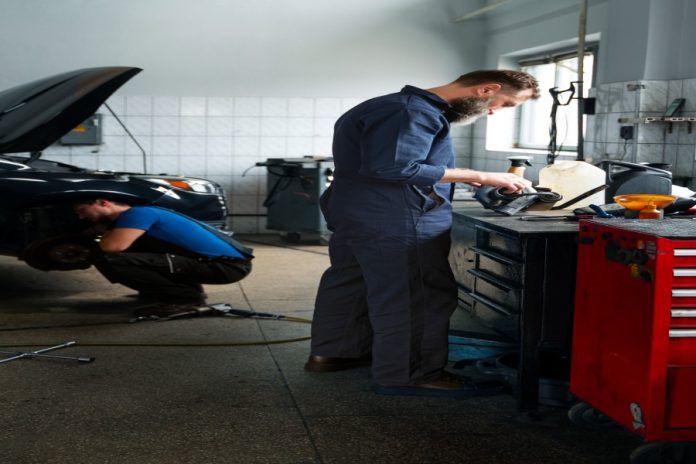Owning an Audi is a mark of sophistication and luxury. However, like any precision-engineered vehicle, Audis require regular maintenance and occasional repairs to ensure optimal performance and longevity. Whether you’re a seasoned Audi enthusiast or a new owner, understanding the nuances of Audi car repair can save you time, money, and headaches down the road.
Why Audi Car Repair Demands Special Attention
Audi cars are renowned for their engineering excellence, cutting-edge technology, and high-performance capabilities. However, these sophisticated features also mean that Audi repair work requires specialized knowledge, tools, and expertise. Here are some reasons why Audi car repair demands special attention:
Complexity of Systems:
Audis are equipped with advanced systems such as Quattro all-wheel drive, adaptive air suspension, and MMI infotainment. Repairing these intricate systems requires technicians with specific training and experience.
Specialized Parts:
Audi vehicles use unique parts and components designed for precision and performance. Using generic or aftermarket parts can compromise the vehicle’s performance and safety.
Diagnostic Challenges:
Modern Audis come equipped with sophisticated onboard diagnostics systems. Properly diagnosing issues requires advanced diagnostic tools and software, along with a deep understanding of Audi’s proprietary systems.
Electronics and Technology:
Audis are equipped with cutting-edge electronics and technology features, including advanced driver assistance systems and digital displays. Repairing these systems requires technicians with expertise in automotive electronics.
With these challenges in mind, let’s delve into essential tips and strategies for Audi car repair.
Essential Tips for Audi Car Repair
Choose an Authorized Audi Service Center:
When it comes to Audi car repair, entrust your vehicle to authorized service centers staffed with certified technicians. Authorized service centers have access to the latest technical information, tools, and genuine Audi parts, ensuring that your vehicle receives the highest standard of care.
Follow the Manufacturer’s Maintenance Schedule:
Audi provides a detailed maintenance schedule tailored to each model. Adhering to this schedule ensures that your Audi receives timely service and preventive maintenance, reducing the likelihood of unexpected breakdowns and costly repairs.
Address Issues Promptly:
Ignoring minor issues can lead to more significant problems down the line. If you notice any unusual sounds, warning lights, or changes in performance, have your Audi inspected by a qualified technician promptly. Addressing issues early can prevent further damage and save you money in the long run.
Use Genuine Audi Parts:
When replacing parts in your Audi, always opt for genuine Audi parts. Genuine parts are specifically designed and tested to meet Audi’s stringent quality standards, ensuring optimal performance, reliability, and safety. Using aftermarket or counterfeit parts can compromise your vehicle’s performance and warranty coverage.
Stay Informed:
Stay informed about recalls, technical service bulletins, and common issues affecting your Audi model. Audi owners’ forums, online resources, and official Audi websites are valuable sources of information. Being aware of potential issues allows you to address them proactively and stay ahead of any emerging problems.
Invest in Professional Training and Equipment:
If you’re a DIY enthusiast, invest in professional-grade diagnostic tools and equipment specifically designed for Audi vehicles. Additionally, consider enrolling in training courses or workshops to enhance your knowledge and skills in Audi car repair. However, keep in mind that some repairs may require specialized expertise and equipment best left to professionals.
Common Audi Car Repair Issues and Solutions
Electrical System Malfunctions:
Audis are equipped with sophisticated electrical systems prone to issues such as faulty sensors, malfunctioning control modules, and electrical shorts. Proper diagnosis and repair of electrical issues require specialized training and diagnostic equipment.
Suspension and Steering Problems:
Audi’s advanced suspension and steering systems may develop issues such as worn-out bushings, leaking shocks, or misaligned wheels. Regular inspection and maintenance of suspension components can help prevent premature wear and ensure a smooth and stable ride.
Engine Performance Issues:
Common engine-related issues in Audis include misfires, rough idling, and loss of power. These issues can stem from various factors such as faulty ignition coils, carbon buildup, or sensor malfunctions. Thorough diagnosis by a qualified technician is essential to pinpoint the underlying cause and implement effective repairs.
Transmission Problems:
Audi’s advanced transmission systems, including S-tronic and Tiptronic transmissions, may experience issues such as rough shifting, delayed engagement, or transmission fluid leaks. Regular transmission service and prompt repairs can help prevent costly transmission failures and ensure optimal performance.
Braking System Concerns:
Brake-related issues such as squealing brakes, soft brake pedals, or pulsating sensations during braking require immediate attention. Proper maintenance of brake components, including brake pads, rotors, and calipers, is essential for safe driving and optimal braking performance.
Conclusion
Audi cars represent the pinnacle of automotive engineering, combining performance, luxury, and cutting-edge technology. However, maintaining and repairing these sophisticated vehicles require specialized knowledge, tools, and expertise. By following essential tips, staying informed about common issues, and entrusting your Audi to authorized service centers, you can ensure that your vehicle receives the care it deserves. Remember, proactive maintenance and timely repairs are key to preserving your Audi’s performance, reliability, and resale value.








